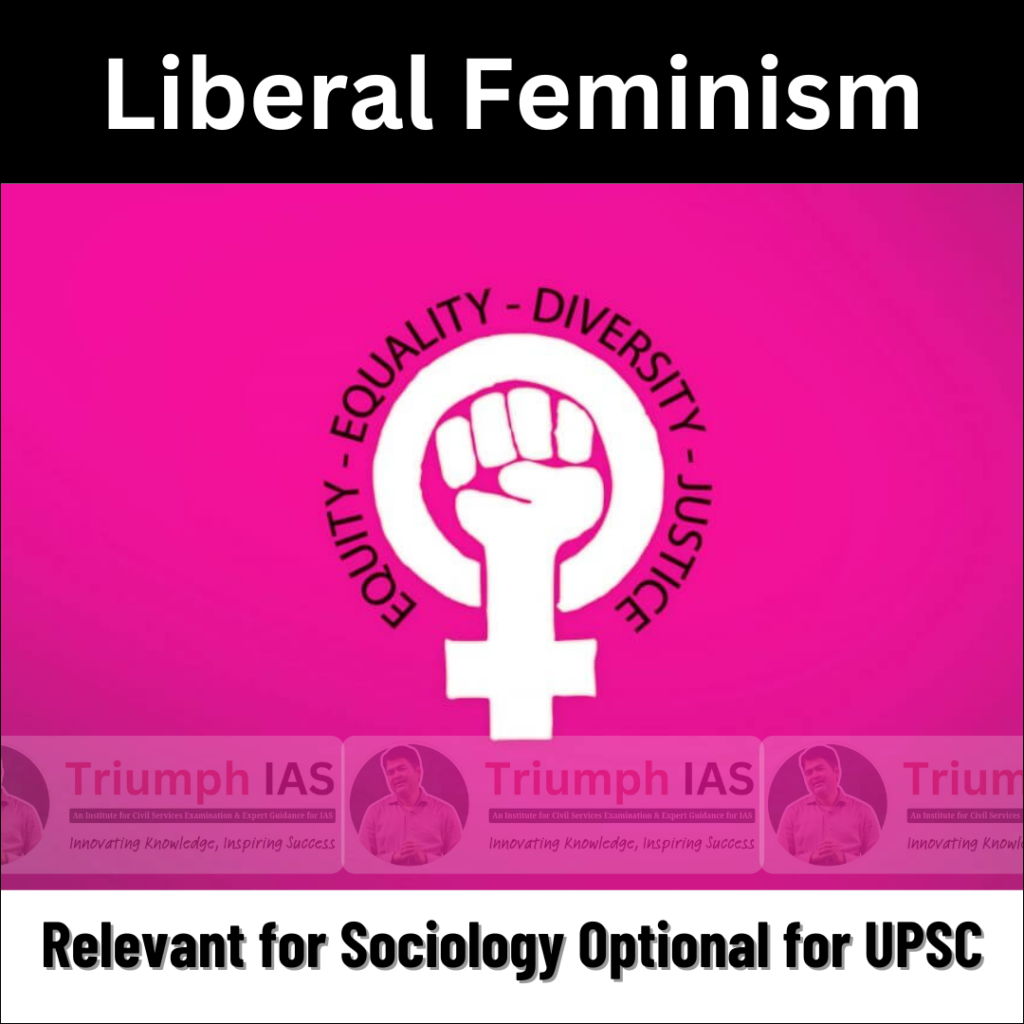Liberal Feminism
(Relevant for Sociology Optional UPSC)

|
Liberal feminism is a political and philosophical movement that emerged in the late 19th and early 20th centuries as an offshoot of feminism. It emphasizes the importance of individual freedom, equality, and legal rights for women. Liberal feminists believe that women should have the same legal and political rights as men, and that the state has a responsibility to ensure that these rights are protected. Liberal feminism focuses on achieving gender equality through legal and institutional reforms. Liberal feminists argue that women should be free to pursue their own goals and interests, and that they should have the same opportunities as men to succeed in their chosen fields. One of the key principles of liberal feminism is the idea that gender inequality is primarily the result of social and cultural attitudes and beliefs. Liberal feminists argue that gender roles are learned, and that these roles can be changed through education and socialization. Liberal feminists also emphasize the importance of economic equality. They argue that women should have access to the same economic opportunities as men, and that this requires policies that promote equal pay for equal work, as well as policies that support work-life balance, such as parental leave and flexible working arrangements. In terms of specific policy proposals, liberal feminists advocate for a range of measures aimed at promoting gender equality. These may include equal pay laws, anti-discrimination legislation, and affirmative action programs. Liberal feminists also often focus on issues related to reproductive rights and sexual autonomy. They argue that women should have the right to control their own bodies and make decisions about their reproductive health, and that access to contraception and abortion is essential for women’s equality. Critics of liberal feminism often argue that it is too focused on individualism and too quick to dismiss the role of structural factors, such as social and economic inequality, in shaping women’s experiences of oppression. Some argue that liberal feminism ignores the role that other forms of oppression, such as racism and homophobia, can play in shaping women’s experiences of inequality. Overall, liberal feminism represents an important strand of feminist thought that emphasizes the importance of legal and institutional reforms in promoting gender equality. By focusing on individual freedom, equality, and legal rights, liberal feminism offers a powerful framework for understanding and addressing the challenges facing women in the 21st century. |


One comment